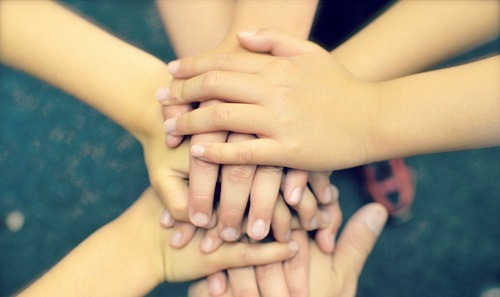
A community is a group of people who have gathered around a shared idea, value, concept, or interest. What people sometimes forget is how a community is also an ecosystem of supportive productivity in which people connect to help each other solve a problem or accomplish goals.
Your community can help you get stuff done. This stands true whether you’re thinking of community as part of your personal life or in relation to your company.
Our recent work with CollaborativeConsumption.com to strengthen their leadership in the “sharing economy” (or “collcon” space) is just one example of how the care, passion, and dedication of a community can enable and inspire its members to create value together.
In converting their highly-trafficked blog into an international media site with 30 global contributors, we found that community members can actually produce on behalf of the company. By creating a structured content marketing strategy, style guide, and contributor onboarding process, CollaborativeConsumption.com increased user-generated content submissions by 650%.
Not only did this make its community more self-sufficient and scalable, their participation helped create high-quality content to educate the audience-at-large on collcons, the ultimate goal. Lauren Anderson, Chief Knowledge Officer at Collaborative Lab, explains, “We recognize collcons is a global movement and we wanted to empower local people to share stories of their region and build their profile as local leaders in the space.”
Whether your community is a book club or a B2B business coalition, whether it meets on an online platform or at in-person events, there are opportunities to increase productivity and move projects forward.
Here are a few ways you can leverage your community to get stuff done.
1. As a knowledge source + resource hub.
Collecting different points of view is invaluable to developing creative and effective solutions, which makes a community the perfect place to inquire about potential solutions for a challenge that has you stumped.
With members working across different industries and fields, you’ll collect a wide variety of unique perspectives. Take a look at how some people use Quora or the way people use Facebook to poll others for advice on travel or where to find a good web developer. Run into a dry spell of content? Reach out to your community to discover what they’re curious about.
Learn how your community gets stuff done. Ask them what tools and processes they use and what their favorite time and project management programs are. People love sharing this type of knowledge. Try out their suggestions, then tweak and iterate until you find what works best for you.
2. To prevent wasted time in the product development cycle.
By getting your community involved early in product development pre-launch, you create an opportunity to receive feedback from the people who matter most — people interested in your product. Keeping in constant communication with your community allows you to collect insight into your users’ wants and needs, as well as voluntary feedback for your product. The lack of solicitation makes for more honest and open communication.
3. To develop and run your community.
People don’t scale, but communities do. If your community has a place to meet and even monitor itself — such as a forum like lighhouse.io, a LinkedIn group like Content Marketing Academy, or a platform like Meetup.com — your members will get stuff done for you. Such channels allow people to interact, create events, and bring in more members. They’ll start conversations among themselves, organize meetings, share your updates and content, and help spread the word about your product or services.
4. To create accountability and increase productivity.
Since your community is made up of people with whom you share commonalities, you can find the perfect partners to share at least one of your relevant goals. This way, you can create a commitment.
As Scott Belsky says in this book Making Ideas Happen, “Every idea has its constituents — members of your community who hold a stake. It is your job to engage and make use of your idea’s constituents.”
When you promise something to your community, you become accountable, and accountability boosts productivity. As Belsky points out, a connection is a motivating factor: “Aside from the collaborations and useful feedback that can arise from transparency, you are also likely to become more productive as others see your activity and help you make connections you would otherwise miss.”
Just be careful not to overshare!
Be conscious of how your community participation fits in with your routine, your process, or workflow. Doing so will help you make the most of your time and fit within the structure of your day, rather than getting lost in the fray, as can happen in community and social sites like Twitter, Reddit, and other forums.
These are just some of the ways I’ve been able to tap my communities to be more productive. I would love to hear how your community has helped you get stuff done!
Photo: adapted from D I/Flickr
